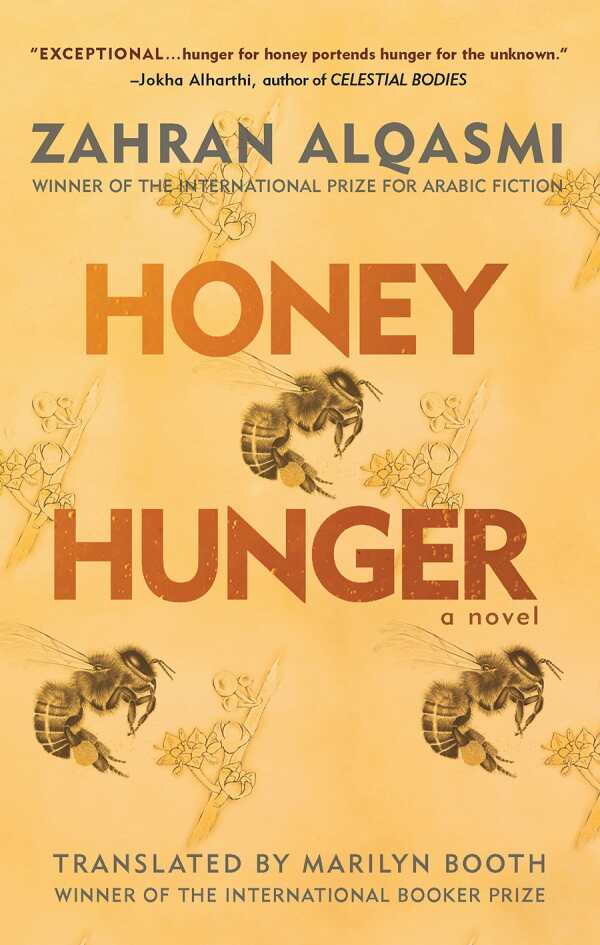Honey Hunger
A smitten Omani man’s beekeeping consumes Zahran Alqasmi’s novel Honey Hunger.
Returning to his home village after a tough winter that forced the temporary relocation of his bee colony to the desert region of Juba, Azzan, a recovered alcoholic, is entranced by a beautiful and mysterious herdswoman, Thamna, following their chance encounter. He continues to be haunted by the memory of her visage and singing. Later on in the season, he joins his friends, Hamand and Al-Hatati, in the arduous task of seeking out wild beehives for their precious wild honey.
Azzan exhibits external quiet and calm, but his thoughts are revelatory, illuminating his ardent passion for beekeeping: “All he needed [and] wanted from life was to sit amongst them every morning, or in the evening, listening to the sounds they made—that range of humming and buzzing their bodies produced.” Lengthy, methodical chapters documenting the day-to-day of honey harvesting procedures (tending the honeycombs, the protection of queen bees and their supporting worker bees, the prevention of parasitic infections, and the patience required for traversing rugged terrain in search of wild honey) further emphasize the loving care he has for his profession.
The book’s human-animal relationships, including between faithful caregivers and their domesticated goats and donkeys, are multifaceted. There are antagonistic sides of such connections, too, that blur the lines between hunter and prey: The humans encounter fierce, untamable creatures including snakes, scorpions, and birds in the wadis, mountains, and deserts. The bees’ water sources are shrouded by trees set within spacious landscapes. Also expansive are the story’s discursive shifts to explore the backstories, griefs, and yearnings of Azzan’s wide circle of acquaintances amassed through his beekeeping.
Desires arising from loss and the past motivate the partnerships between human guardians and their animal companions in the revealing novel Honey Hunger.
Reviewed by
Isabella Zhou
Disclosure: This article is not an endorsement, but a review. The publisher of this book provided free copies of the book to have their book reviewed by a professional reviewer. No fee was paid by the publisher for this review. Foreword Reviews only recommends books that we love. Foreword Magazine, Inc. is disclosing this in accordance with the Federal Trade Commission’s 16 CFR, Part 255.

